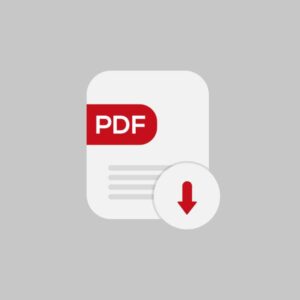Description
In an era characterized by unprecedented technological advancement and digital integration, the landscape of personal health data privacy has assumed a paramount significance (Smith, 2020). The rapid proliferation of interconnected devices, electronic health records, mobile applications, and wearable gadgets has ushered in a new era of healthcare management, promising greater convenience, efficiency, and personalized experiences for individuals (The World Health Organization, 2020). However, this digital transformation has also given rise to intricate challenges concerning the safeguarding of sensitive personal health information (Huesch & Mosher, 2020).
The concept of personal health data privacy encompasses the protection, control, and ethical use of individual health-related information in digital contexts (Fernández-Alemán et al., 2013). As people embrace digital tools to monitor their fitness, track medical histories, and engage with healthcare professionals remotely, a colossal amount of personal data is generated, exchanged, and stored online (Pagliari et al., 2007). This paradigm shift necessitates a critical examination of the balance between the benefits of digitized healthcare and the preservation of individuals’ privacy rights.
This intricate interplay between technological innovation and privacy concerns is the crux of navigating personal health data privacy in the digital age (Denecke et al., 2019). Striking the right equilibrium between reaping the advantages of real-time health insights and maintaining the confidentiality of medical records becomes an intricate puzzle. Questions arise about the ownership of health data, consent for data collection and sharing, potential data breaches, and the ethical implications of data-driven healthcare decisions. As the digital realm expands, so do the potential vulnerabilities that could expose sensitive health information to unauthorized access, malicious hacking, or commercial exploitation.
Moreover, the legal and regulatory landscape surrounding personal health data privacy remains dynamic and varies across jurisdictions (Jones et al., 2018). With landmark regulations such as the General Data Protection Regulation (GDPR) in Europe and the Health Insurance Portability and Accountability Act (HIPAA) in the United States, efforts are underway to define the responsibilities of entities handling health data and the rights of individuals whose data is at stake.


Reviews
There are no reviews yet.